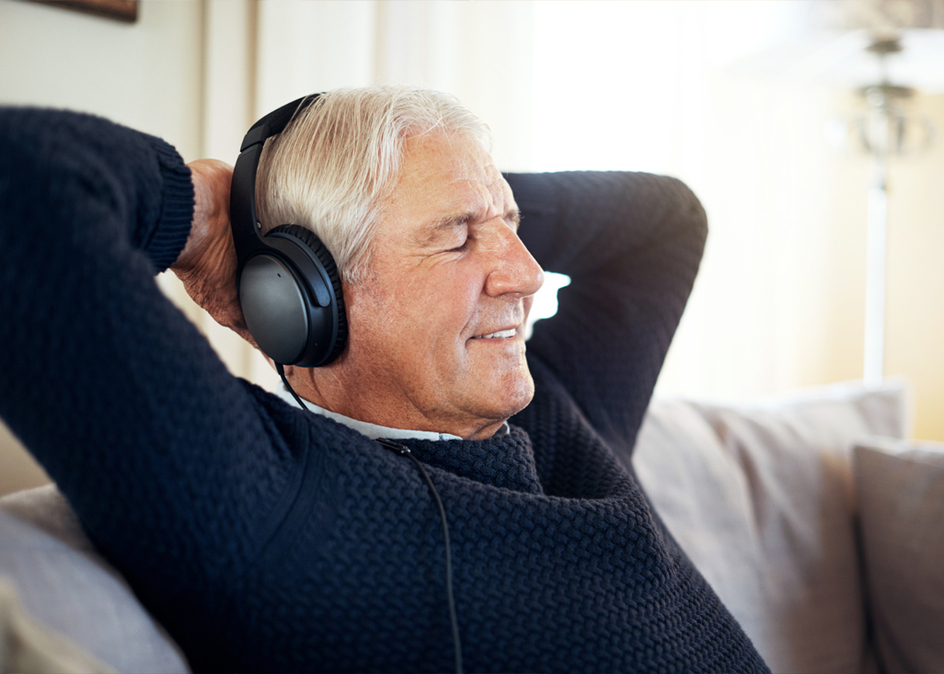
“Music is the medicine of the mind,” wrote soldier and writer John A. Logan — and research agrees. Whether we’re singing along to a favourite song on the radio, enjoying live music, or recalling an old memory sparked by a beloved tune, most of us can attest to the mood-enhancing effect of music.
Still, you may not have considered what an incredible tool music can be to forge connections, relieve anxiety, and increase brain activity in seniors — even those with dementia.
“Music activates many parts of the brain, and it can actually slow down the progress of cognitive decline,” confirms Chelsea Mackinnon, an education and research manager at IMHOPE, an arts/health organization that provides intergenerational music programs. “Consider music a catalyst for meaningful moments.”
The brain benefits of music
So why is music so powerful? It’s no surprise to hear that listening to and making music is associated with improved mental well-being. What’s interesting is that music stimulates so many different regions of the brain, reducing pain and stress and boosting cognitive function at any age. (Look at this interactive article to see how different parts of your brain respond to music, for instance.)
“A key area in the brain that processes and stores musical information is the limbic system, including the amygdala and hippocampus, which help regulate our emotions and memory,” says Mackinnon. Music unlocks that vault, she adds, enabling learning even in late-stage dementia such as Alzheimer’s.
At Amica, we see this happen every day because music is a core element of our enriching activities and wellness programs for seniors and a favourite activity for residents in Memory Care.
“I’ll never forget one resident who was really challenged to converse,” says Ashley Sumler, director of quality of life resident experience at Amica. “A team member started playing one of her favourite songs, and she immediately started singing and harmonizing. She knew every word. What was more impactful was the sheer joy on her face, and the pride that she could contribute to the music.”
Bringing music into caregiving and self-care
Luckily, you don’t have to play piano or guitar to leverage music in your daily life and activities with seniors.
- Make a playlist of your loved one’s favourite songs, or your own relaxing tunes.
- Quietly play soothing or happy music at key transition times in a senior’s day, such as getting ready in the morning. Be sure to choose songs they enjoy.
- Attend musical performances, watch and sing along to free concert videos on YouTube, or explore new musical genres on streaming services such as Spotify, Apple Music, Amazon Music or iHeartRadio with a senior.
- Ask a senior about songs played at meaningful moments in their lives, such as their wedding or a high-school dance.
- Join an in-person or virtual choir together (You can participate on mute if you’re tone deaf but still want to have fun!).
- Play “Name That Tune” together.
Music therapy, live performances, group singalongs and other musical moments make each day at Amica special. Sumler adds: “We’ll turn on the radio to start a resident’s day on a positive note, or have residents choose and change records on a record player to boost activity and purpose.”
Schedule a tour to learn more about inspiring lifestyles for seniors, including exceptional dining, amenities, activities as well as flexible, personalized care.
